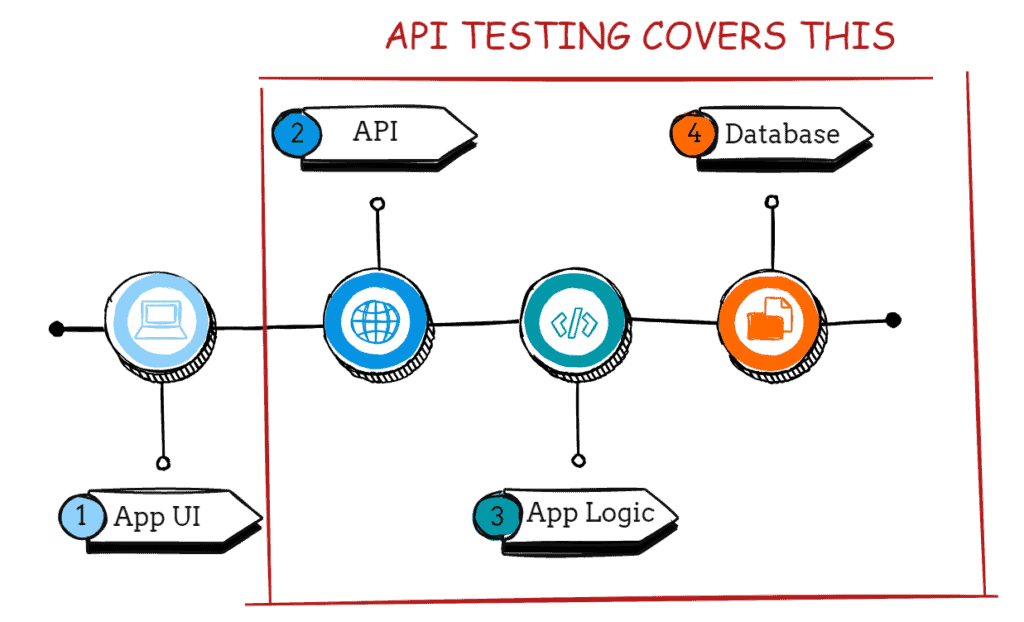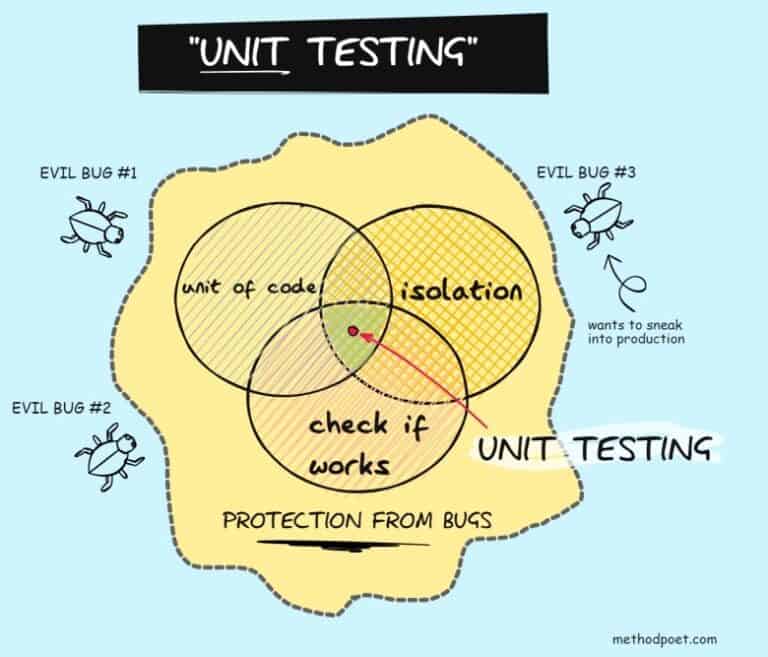Do you know that testing is essential when building apps?
When you start building applications for the web or mobile apps, you may think that testing happens later in the development process.
But that’s not true!
You should test your code during every stage of your project.
However, when people think of testing, they usually think of unit tests. But how to test your APIs? Well, you need API testing. API testing vs unit testing: what is the difference?
API testing refers to testing an API (application programming interface), while unit testing refers to testing individual code units. API testing is more complex than unit testing, as it requires testing not only the individual units of code but also their interaction.
API testing and unit testing are very different, yet very similar!
They both help you make sure your code is working correctly. But they do so in different ways and at different points during the development process.
Let’s look at the main differences between API testing and unit testing.
What is API testing?
API testing is the process of checking that an API works as expected.

It includes verifying that you can access the API correctly, it returns the correct data, and functions as expected. In addition, you can use an API test to ensure that every API call meets the requirements and works as intended.
It is a black-box test method and is crucial as it helps to protect the integrity of the system and its components.
You can perform API testing manually or using automated tools. Manual testing is more time-consuming, but it can be more thorough. Automated API testing can be faster in the long run, but they require more time for setup.
API testing is an integral part of system verification and should be carried out before you put the API in production. It helps to ensure that the system functions as expected and that its interfaces are working correctly.
What are the benefits of API testing?
API testing allows developers to ensure that the APIs they build work as expected and meet the requirements outlined by the client. Additionally, API testing identifies issues with the API before you make it available to the public. It also can help ensure that APIs are secure and meet any compliance requirements.
As a startup, you need to be aware of the potential risks of NOT testing your API. The two main ones are:
- The risk of poor quality API: It’s a genuine possibility that your API doesn’t live up to the standards you expect. You must understand that your API is vital for your business.
- The risk of releasing an incomplete API: The last thing you want is to release an incomplete API, primarily if you’ve invested a lot of time and money in it.
Types of API testing
There are several different types of API testing:
- Functional testing – Functional testing of an API verifies that the API functions as intended and that the calls and responses are as expected. Functional tests involve testing the API against a specification or specific use cases.
- Load testing – Load testing is an API performance testing activity that helps identify the maximum capacity of a system or component and determine whether it meets performance requirements. Load testing is performed by putting a load on the system or component and measuring the response. It can identify any potential bottlenecks or areas of weakness that you need to address.
- Security testing – API security testing is the process of identifying and mitigating vulnerabilities in APIs. It can include identifying common attack vectors, such as Cross-Site Scripting (XSS) or SQL Injection.
- Fuzz testing – Fuzz testing is the process of sending randomized, unexpected, and invalid input data to an API. You perform it to test the robustness of the API and identify errors in the code.
What is unit testing?

Unit testing is the testing of individual units of code. For example, the unit might be a function or a class. Every unit test is designed to test the code in isolation and verify that it behaves as expected.
Unit testing helps you find errors in your code early and prevents them from becoming bugs that impact your users. It is a white-box testing technique.
You perform unit testing before you do any integration testing or system testing. That means that you can ensure that your units are working correctly before testing them with other system parts. Unit testing is also an excellent way to ensure that your code is maintainable. When you have tests for your units, you can be sure that any changes you make to the code will not break the functionality of your app.
Benefits of unit testing
Unit testing is beneficial because it helps to ensure that the code functions as expected and catches errors early in the development process. Additionally, unit testing can help to improve code quality and maintainability.
API testing vs unit testing: what are the differences?
API and unit testing are essential parts of the software development process, but they serve different purposes. Understanding the differences between them will help you make the most of each one.
#1 API testing is more comprehensive as it tests the API from the user’s perspective
API testing is more comprehensive as it tests the API from the user’s perspective. It includes, but is not limited to, making sure all expected data is sent and received between client and server, that the expected request is what was sent, and that the API correctly handles errors.
#2 API testing is more complex as it involves multiple systems and applications
API testing isn’t a one-size-fits-all approach. It’s the opposite of that. Each API (application programming interface) is different, and that’s why API testing requires a slightly different set of skills than standard unit testing. It also means API testing will require a bit more time.
For each external system integrated with the API, you must be aware that you need to handle it in the tests. You can use test instances of these systems and use the libraries such as Respawn to ensure your test database is clean before executing each test case.
#3 API testing is more time consuming as it requires more setup time
As web applications become increasingly complex, testing the entire product and its features can be difficult and time-consuming. To test the web API, you often need to spend some initial time setting up the test configuration.
#4 API testing is more expensive as it requires more resources
Unit testing helps write efficient and reliable codes, which is essential for today’s competitive business environment, where good software can make or break your business. Unit testing has several benefits, including increased productivity, improved quality of the product, and a reduced likelihood of bugs.
However, unit testing alone may not be enough to cover all the application requirements.
You need API testing as well. But, API testing requires more resources
API testing is vital to ensure that the APIs work as expected. However, API testing can be resource-intensive, and therefore it is important to plan for the necessary resources before starting the testing. The resources required for API testing include test data, test tools, and test environments:
- Test data is needed to create the test scenarios. The test data should represent the data that the API will use in production.
- Test tools are needed to invoke the API and to capture the response. The test tools can be as simple as a tool like Postman or as sophisticated as a dedicated API testing tool.
- Test environments are needed to run the tests. The test environment should be similar to the production environment, including network configuration, system configuration, and database configuration.
#5 API testing is more challenging as it is more difficult to test all possible scenarios and combinations
API testing is a massive challenge for any company. It is so because it is not easy to test all possible scenarios and combinations. That’s where unit testing comes in place. It can help you check all the edge cases that are difficult to replicate in API testing.
Conclusion
API and unit testing are both important types of software testing, but they serve different purposes. You use unit testing to test individual units of code, while API testing checks the functionality of an entire API. API testing is more comprehensive than unit testing. As a result, you can use it to test both the functionality and the performance of an API.
Testing APIs is an integral part of the software development and testing methodology. But API testing is not as easy as it may look. It is a very complex process and requires specific skills and experience.
But, you need it. So, invest some time. It will be worth it.
